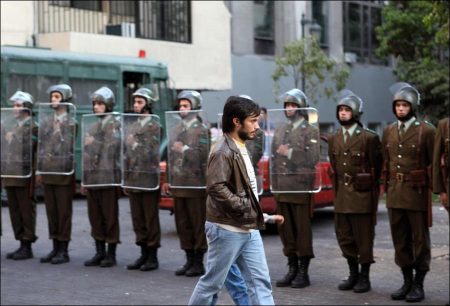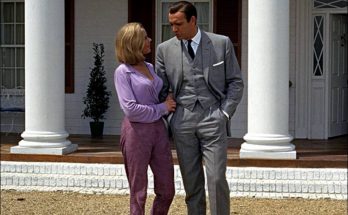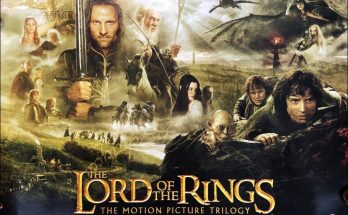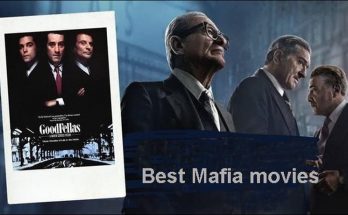“No” speaks of the end of the dictatorship. “No” is the last part of a trilogy Pablo Larrain began in 2008 with Tony Manero, a dark comedy with intimations of political turmoil, about a middle-aged psychopath who devotes his life to becoming his country’s best John Travolta impersonator vintage “Saturday Night Fever”.
In the second installment, “Post Mortem”, a Kafka-esque clerk in the city morgue, hopelessly in love with an exotic dancer who lives next door, is shocked into awareness of political reality when he comes face to face with the collateral damage of a brutal coup d’etat.
“Post Mortem” speaks of the origin of the dictatorship, Tony Manero about its most violent moment, and “No” is about the end,” elaborates director Pablo Larrain. “Perhaps what I am most interested in is revising and revisiting the imagery of the violence, the moral destruction and ideological distortion, not in order to understand it, but in order to shed light on it.”
Inspired by actual events, NO puts its hero, Rene Saavedra, in charge of a vibrant, fresh ad campaign instrumental in deposing the dictator Augusto Pinochet. “No” is an epic David and Goliath story, a black comedy with attitude,” says producer Juan de Dios Larrain.
“Here’s a guy who’s using advertising tools to change the social process,” adds director-producer Pablo Larrain. “That’s why it’s so original and strange at the same time.”
Gael Garcia Bernal, the international star of such films as “Amores Perros”, “The Motorcycle Diaries”, “Babel”, “Letters to Juliet” and the recent “Casa De Mi Padre”, is a partner in the production-distribution company Canana Films, which has successfully collaborated with Fabula on Tony Manero and “Post Nortem”. It seemed only natural for Gael to move to the front of Pablo Larrain’s camera one day, especially on a film like “No” that so brilliantly reflects his own social conscience and shares their mutual political sensibilities.
“It’s an important movie,” says Bernal. “When something is important and it’s expressed through an art form, then hopefully it will have a transcendence and a relevance so people can connect to it.”
“I think that what was achieved in that moment [the overthrow of the Chilean dictator in a fair election] was one of the most important and pure acts of fraternity that democracy has lived in the world,” he states unequivocally.
Producer Daniel Dreifuss adds: “I’m hopeful this story will resonate with audiences all over the world. The theme of civil liberties and freedom is universal but can be particular to a people and their reality. Like in the movie, each has their own meaning for “No More” and what they strive for.”
“It’s a movie that’s very classic in terms of structure, but I believe the facts we are explaining are very unique and, at the same time, universal,” Pablo explains. “That’s why we’re all so fascinated by it. It’s something we can all understand, and you don’t have to be Chilean to experience it.”
When the Larrain brothers began to prepare to make the film, they realized it was going to be on a much grander scale than anything they had done before, and they sought to partner with another company for financing. They joined forces with Daniel Dreifuss, a young LA based producer interested in foreign films, and worked on the development of the script. Daniel devised the strategy to create a US co-production and brought the project to Participant Media. Says Participant’s Jonathan King, Executive Vice President of Production: “I had seen Pablo’s previous two movies and was a fan of his work. The script was gripping and completely relevant to pressing contemporary issues like the movement for democratic freedom worldwide. Gael was already attached, so we agreed to finance the movie, and it all came together very quickly.”
Collaborating once again with Pablo and Juan de Dios Larrain on “No” is Antonia Zegers, who appeared in Tony Manero and “Post Mortem”, as well as Alfredo Castro and Marcial Tagle, who have been in all four of Larrain’s films. In “No”, Tagle portrays a cameraman with whom Saavedra sometimes clashes. Jaime Vadell, who was also in “Post Mortem”, is seen as a Pinochet government minister. Working with Larrain for the first time are actors Luis Gnecco as Urrutia, the man who recruits Saavedra to join the band of “No”, Nestor Cantillana as commercial director Costa and Pascal Montero as Simon, Rene and Veronica’s son.
Also appearing in the film are Jose Manuel Salcedo and Enrique Garcia, two of the men most instrumental in achieving the brilliant success of the 1988 “No” campaign (Rene Saavedra is a composite character of the two). Larrain cast them against type — Salcedo sneaks the “No” video from the censor’s office and passes it on to the Pinochet camp; Garcia is seen at the conference table with other high ranking officials of the YES contingent.
Furthering their creative relationships with Larrain are cinematographer Sergio Armstrong, who shot “My Last Round” and “The Maid”, and Film Editor Andrea Chinogli, who recently edited “Circumstance”. Production Designer Estefania Larrain (no relation) was Art Director on “My Last Round”; Costume Designer Francisca Román last worked on “The Maid”. Carlos Cabezas composed original music for “No” and has scored five other pictures; he’s the vocalist for the influential band Electrodomesticos. Casting Director Solange Medina is credited with Roberto Artiagoitia’s comedy “Grado 3”, produced by the Larrains via Fabula.
For “No”, Pablo was committed to recreating the look of the period. With Armstrong’s aid and encouragement, he tracked down a 1983 U-matic video camera to shoot 2012 footage to match that of the 1988 past. Not only did he want to integrate archival news footage in a seamless fashion with the new material, he used many of the TV spots and actual on- and off-screen participants from the campaign 24 years ago.
The best example of this technique is when Larrain cuts from a close- up of the white haired narrator of the nightly NO newscast (“No-ticias”) to a wide shot of the studio in which he is seen “live” on a TV monitor. He looks almost the same but his hair isn’t so white — it’s the actual video of the newscaster almost a quarter of a century ago. For fifteen years he’s been off the air, blacklisted because his politics differed from those of the dictatorship. Here he is, back in front of his audience for the mandated 27 days of campaigning thanks to the paid promotional announcements funded by the NO people; a true story.
Producer Juan de Dios Larrain, Pablo’s brother and producing partner, points out that the hand- held camera with its flashes and flares is intentional, spontaneous. “Pablo wants the camera to be as much a participant in scenes as the actors,” he explains. “Pablo likes his camera to get dirty.”
Larrain sought authenticity wherever he could find it. The infectious songs and jingles are all from the 1988 campaign, as are many of the singers, dancers and actors in the commercials. In a coup of his own, Larrain captured Patricio Aylwin, the “No” candidate who succeeded Pinochet, with his U-matic camera and intercut the 2012 restaging of the victory celebration with actual news coverage from the event. “Sometimes I can’t tell the difference myself,” he has to admit.
No
Directed by: Pablo Larraín
Starring: Gael García Bernal, Jane Fonda, Richard Dreyfuss, Christopher Reeve, Alfredo Castro
Screenplay by: Pedro Peirano
Cinematography by: Sergio Armstrong
Film Editing by: Andrea Chignoli
Costume Design by: Francisca Román
Set Decoration by: María Eugenia Hederra
Music by: Carlos Cabezas
MPAA Rating: R for language.
Studio: Sony Pictures Classics
Release Date: February 15, 2013
Related Link: View the Full Production Notes for No
Visits: 63



